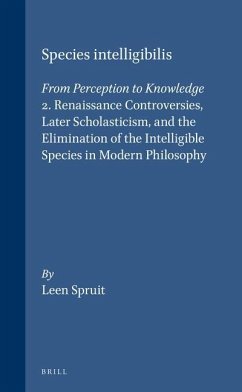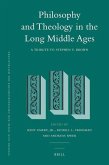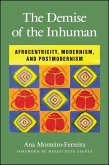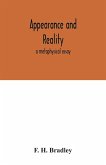Medieval discussions of mental representation were constrained in essential ways by Thomas Aquinas' doctrine of intelligible species. Aquinas' view of a formal mediation of sensible reality in intellectual knowledge was not universally accepted. In particular, after his death, a long series of controversies developed about the necessity of intelligible species. (These were analyzed in the first volume of this study.) The first part of this book deals with Renaissance controversies, discussing Peripatetics, Neoplatonics, and a group of relatively independent authors. In the second part, developments of late Scholasticism, and the elimination of the intelligible species in modern non-Aristotelian philosophy are scrutinized. Particular attention is paid to the possible roots of the seventeenth-century theories of ideas in traditional philosophy.








